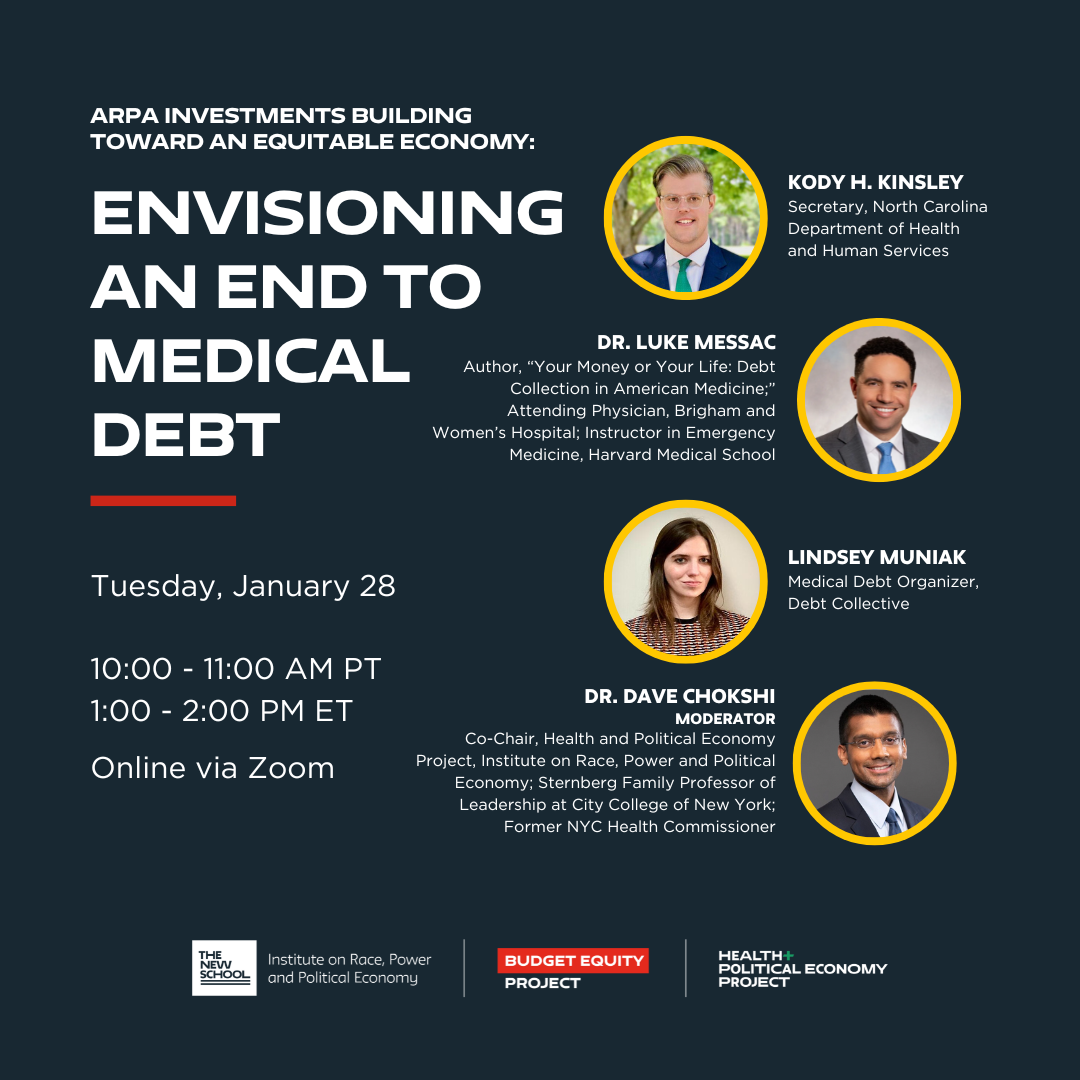
- This event has passed.
ARPA Investments Building Toward an Equitable Economy: Envisioning an End to Medical Debt
January 28 @ 1:00 pm - 2:00 pm

Too many Americans know the feeling of dread that comes with needing healthcare but worrying about how to pay for it. A simple visit to the doctor’s office or hospital may result in a bill that’s beyond what most can afford, yet people have no choice but to risk their financial health for the sake of survival. This burden falls disproportionately on Black people, people with low-incomes, and people with disabilities, further contributing to inequality and the racial wealth gap in the U.S.
Inspired by efforts to tackle medical debt across the country, this conversation will ask: How can we translate momentum to cancel debt into efforts that prevent medical debt in the first place? And how can that momentum be an entry point into broader efforts to end medical debt through guaranteed healthcare for all?
Please join us to discuss statewide policies, local organizing strategies, and the national paradigm shift we need to ensure all Americans can access care without fear of debt.
This conversation is part of the From Local Innovation to Systemic Change: ARPA Investments Building Toward an Equitable Economy webinar series co-hosted by the Institute on Race, Power and Political Economy’s Budget Equity Project and the Health and Political Economy Project. The series showcases local policy movements fueled by federal funding from the American Rescue Plan Act of 2021 (ARPA), as described in the Institute’s research, and uplifts how these movements can drive large-scale policy shifts to increase economic and health equity. In case you missed it, watch the first discussion in this series, featuring local leaders taking action to address medical debt.
Speakers:
- Kody H. Kinsley, Secretary, North Carolina Department of Health and Human Services
- Dr. Luke Messac, Author, Your Money or Your Life: Debt Collection in American Medicine; Attending Physician, Brigham and Women’s Hospital; Instructor in Emergency Medicine, Harvard Medical School
- Lindsey Muniak, Medical Debt Organizer, Debt Collective
- Dr. Dave Chokshi, Co-Chair, Health and Political Economy Project, Institute on Race, Power and Political Economy; Sternberg Family Professor of Leadership, City College of New York; Former NYC Health Commissioner (moderator)
Register Now
Presented by the Budget Equity Project and the Health and Political Economy Project (Initiative’s of the Institute on Race, Power and Political Economy)

